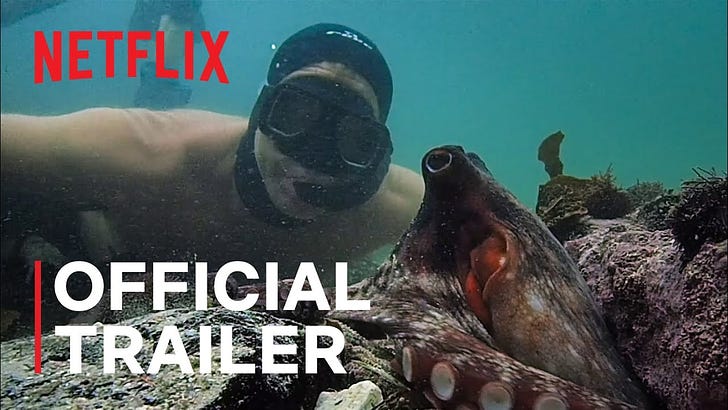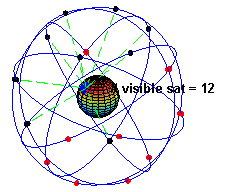The Geography of You (11/15/20)
Hey Friends,
Welcome back to Sunday School, a weekly newsletter to give you a boost in consuming interesting content.
If you haven’t already subscribed, I’d love for you to click this button:
Last week I broke form in A New Decency to look ahead to what I hope to see in the next four years of American politics. I also shared that I try to avoid the clutter that politics tends to create in our minds, living rent-free in brains all across America. I stand by that and am hereby declaring a state of normalcy in the Sunday School newsletter by returning to our regular programming.
This week I have something fun to share, as well as a few great topics.
Let’s get to class!
Homeroom
Podcast: Me, on The Danny Miranda Podcast (Links: Spotify, Apple, Danny’s Website)
I was on a podcast that was published a few weeks ago! Danny Miranda, a writer and podcaster (obviously) had me on to discuss the idea of “relearning creativity,” among other things.
Danny is a force on the internet and is one of those people who motivates others through relentless positivity and encouraging ideas. I had a great time discussing creativity, this essay I wrote about quitting, Writer’s Bloc, and other general ideas about learning and performance.
It’s a bit of a time commitment, but this podcast was a great forum for me to share unfiltered thoughts about what I’ve been up to in the last 6 months. If you listen I’d love to hear your thoughts!
Geography of You
Where in the world are you?
GPS can tell you. But you’ve probably never thought about how GPS actually works. And what is it really?
Here’s a fantastic illustration of GPS:
GPS is a network of 32 satellites orbiting the Earth. The illustration above shows only 24 satellites, which was the number until 2012. These satellites are moving around up in the sky in what’s called Medium Earth Orbit.
At any given time any point on the Earth can be seen by 6 satellites, but that number is usually 9 or higher. The illustration above shows how one point on the Earth is captured by the satellites as the Earth rotates and the satellites move about in orbit.
The GPS system was actually a US Department of Defense project that went live in 1995. I, perhaps like many of you, assumed that GPS had something to do with cellular service. It doesn’t. This is why it works even when you’re out hiking in the middle of the mountains where cell service doesn’t exist. You can use true GPS anywhere.
And those satellites are always doing their thing.
Animal Teachers
The other day I watched a documentary on Netflix called My Octopus Teacher. I’d seen it on Netflix before, and to be honest, I was turned off by the name (I still think it could have a better title).
This is as unique of a documentary as you’ll ever find, and worth watching solely because of that fact. Even after watching the trailer you probably won’t be convinced:
Of course, a person carrying on a relationship with a wild octopus that’s anything more than a few hours is unique, but when you really start to think about that you realize what’s most fascinating about this film.
Scientists have been observing wildlife forever. But how often do humans enter into the natural habitat of wild animals every day and engage with those animals as part of their ecosystem? I’ve never heard of that happening.
As a result, filmmaker Craig Foster began to observe things that humans don’t usually see in wild nature. The lessons he takes away from having an attachment to an octopus are profound, and seeing up close footage of species living in a kelp forest in South Africa is stunning.
If this is something you’ve seen come across your Netflix feed and dismissed because of its weird name, I’d encourage you to check it out.
Getting To Know Strangers
Pay attention to this one, it’s an important, relevant lesson at a time like this.
Think about all of the people that exist in the world that you haven’t gotten to know. Now, put those people into categories according to your current perception of them. There are probably three:
Good impression - Someone you’ve heard of who you have positive assumptions about based on everything you know about them at the time.
Neutral impression - These are either people you’ve heard of that you don’t feel strongly about or people you’ve never heard of and will never meet.
Bad impression - Someone you’ve heard of who you have negative assumptions about based on everything you know about them at the time.
In today’s world, many of us have bad impressions of people affiliated with certain political parties or have good impressions of people who we admire in the public eye.
But here’s the interesting thing that happens when you get to know a person: no matter where they start on your good/bad spectrum, they usually trend toward the middle as you get to know them more.
Here’s a visual from Tim Urban to help you picture this:
Tim Urban shared this image with this caption, which I really love:
"In my experience, getting to know someone I lionize ends up being a disappointment and getting to know someone I demonize is pleasantly surprising. Because humans aren't angels or demons, they're humans."
The takeaway here is that even if you think you hate someone or know that you positively adore someone, reality usually takes over in the end to remind us that we’re all human beings.
I think it’s more important to remember this about those we have negative opinions of. Through real conversation and analysis, we begin to find commonalities and desires that all humans can relate to.
Statistics
Link: Common Probability Errors to Avoid
This is a really interesting quick read from Farnam Street.
Side Note: Farnam Street is an excellent place to find interesting thoughts that take less than a few minutes to read. I highly recommend signing up for their Brain Food newsletter, which is always concise and interesting.
Think about all of the highly improbably events that you come across in your lifetime. According to historical data, none of them have happened to you. But there’s an interesting angle to thinking about this that most people don’t find.
While particular improbable events are indeed highly improbable, the chance of any improbable event happening at all is actually highly probable.
Your personal chances of winning the lottery are very improbable, but the chances that someone wins the lottery is quite likely.
While we’re right to believe that any improbable event is unlikely to happen to us, we should probably get used to not being so surprised when they happen somewhere out there in the world.
Quote of the Week
"If you’re efficient, you’re doing it the wrong way. The right way is the hard way. The show (Seinfeld) was successful because I micromanaged it—every word, every line, every take, every edit, every casting. That’s my way of life." - Jerry Seinfeld
That’s all this week, thanks for attending!
If you want to share this with someone just forward away or click this button:
See you next week,
-Ryan Mulholland




